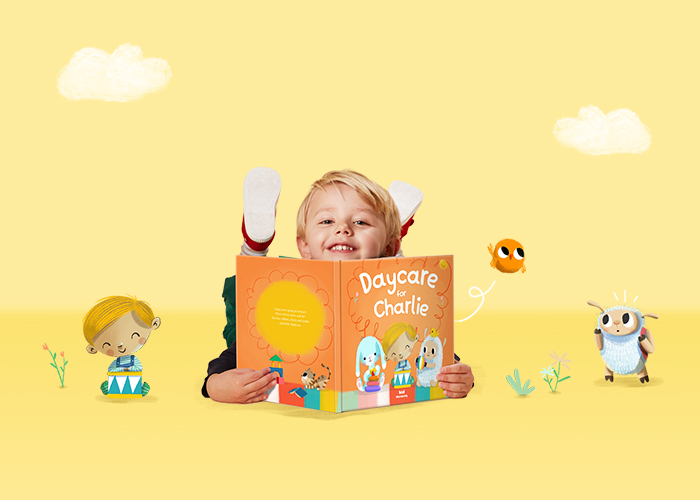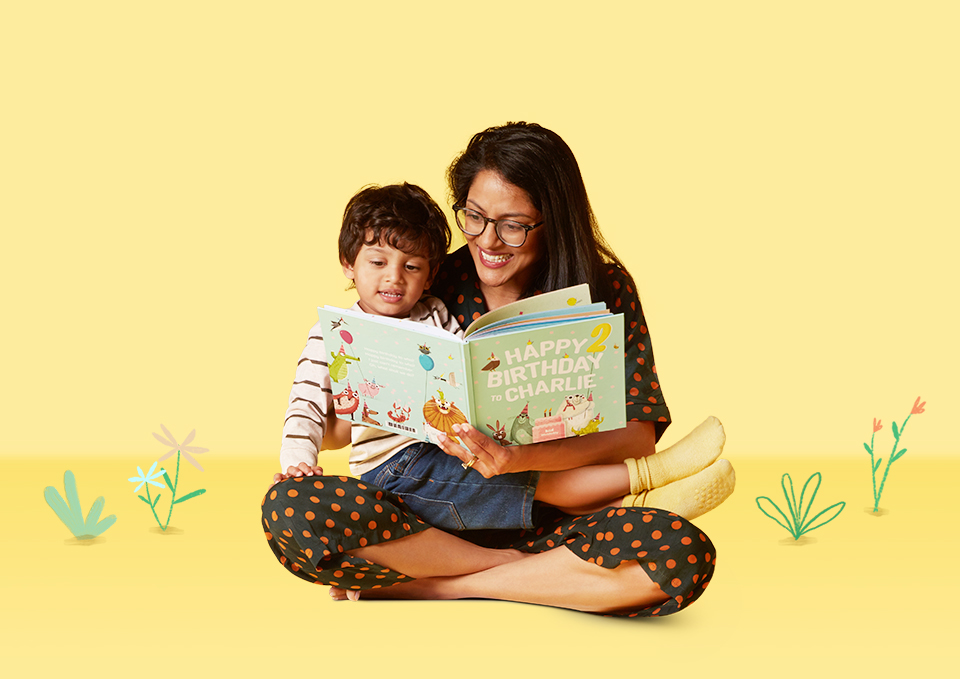From the minute your little one is born, their brain begins developing super-speedily – and it doesn’t slow down for the next three years. Phew! These tips will help care for your little one’s growing mind, and prepare them for years of happy learning ahead.
As your little one develops, there are plenty of things you can do to boost their brain power. Creating caring, language-rich experiences for your child will help their brain form connections, which in turn will supercharge their language, reasoning and planning skills. It’s all connected!
1. Go gaga for baby talk
It feels like second nature to respond when your little one makes noises, but did you know it actively helps your baby’s brain? Exaggerating your facial expressions and emphasising different vowel sounds stimulates the parts of your little one’s brain that are responsible for understanding speech and producing language. Wow-wee-wow-wow, indeed!
2. Pay attention
Make sure you’re at hand when your child points things out (and there will be many, many things they point out, especially in the park!) Giving a name to what they’ve noticed will help build their language skills, and also confirms how important their observations are to you.
3. Get social
Is your little one a chatterbox at home, but quiet as a mouse the moment you get to playgroup? Getting them used to other people will help boost their confidence, and the more confident they feel, the more they’ll learn from interacting with their new friends.

4. Save pacifier for sleepytime
If your child has a pacifier in their mouth for most of the day, they won’t get as much talking practise. This can mean the sounds they use aren’t as clear, and they might rely on fewer words. If your little one needs a comforter during the day, try substituting their pacifier for a blanket or a small stuffed animal. This way, you’re saving the pacifier for night time routines.
5. Include them in your daily routine
Your child will naturally be curious about the adult activities you get up to throughout the day (especially if they involve your phone!). Get your little one to join in with your daily tasks, and talk about what you are doing together – like ‘I’m washing up your bowl!’ or ‘Can you find Daddy’s shoes?’ Talking together helps boost your child’s brain, and supports language development.
6. Take your time
Imagine all the synapses firing in your little one’s growing brain every second. It’s mind-blowing! Young children often need a minute to process what you say, and plan how they want to respond. Give them time, and then you can have a conversation together.
7. Be communication-friendly
Give your child a little extra support as they develop their language skills. Use short sentences, and not too many complicated words. Get down to their eye level, and repeat things they say as they go about their daily routine. It all helps them get to grips with their words, and boosts their ability to make sense of the wonderful world around them!
8. Choose smarter toys
Playing is an important part of a child’s development – and one of the most fun! Pick toys that spark curiosity, and encourage little ones to interact. Lots of toys and games are designed to improve motor skills (like building blocks) or teach children about cause-and-effect relationships (like matching games that light up, or play music when they’re played correctly).
9. Make a song and dance about it
Singing nursery songs together will help develop your little one’s understanding of rhythm and language patterns. That’s why children’s books rhyme all the time! Don’t forget to add actions when you’re singing (like wiggling your fingers to ‘Incy Wincy Spider’). This helps your child make the connection between sounds and motor actions.

10. Don’t skip storytime!
You didn’t think we were going to forget about reading brilliant books, did you?! Even before little ones can recognise letters or words, reading together kickstarts language and communication skills. Hearing words and seeing pictures in books will connect the two in a child’s mind. Make the most of every storytime: encourage your little one to point things out on the page, read their favourite stories over and over, and never miss an opportunity to do a funny voice!
